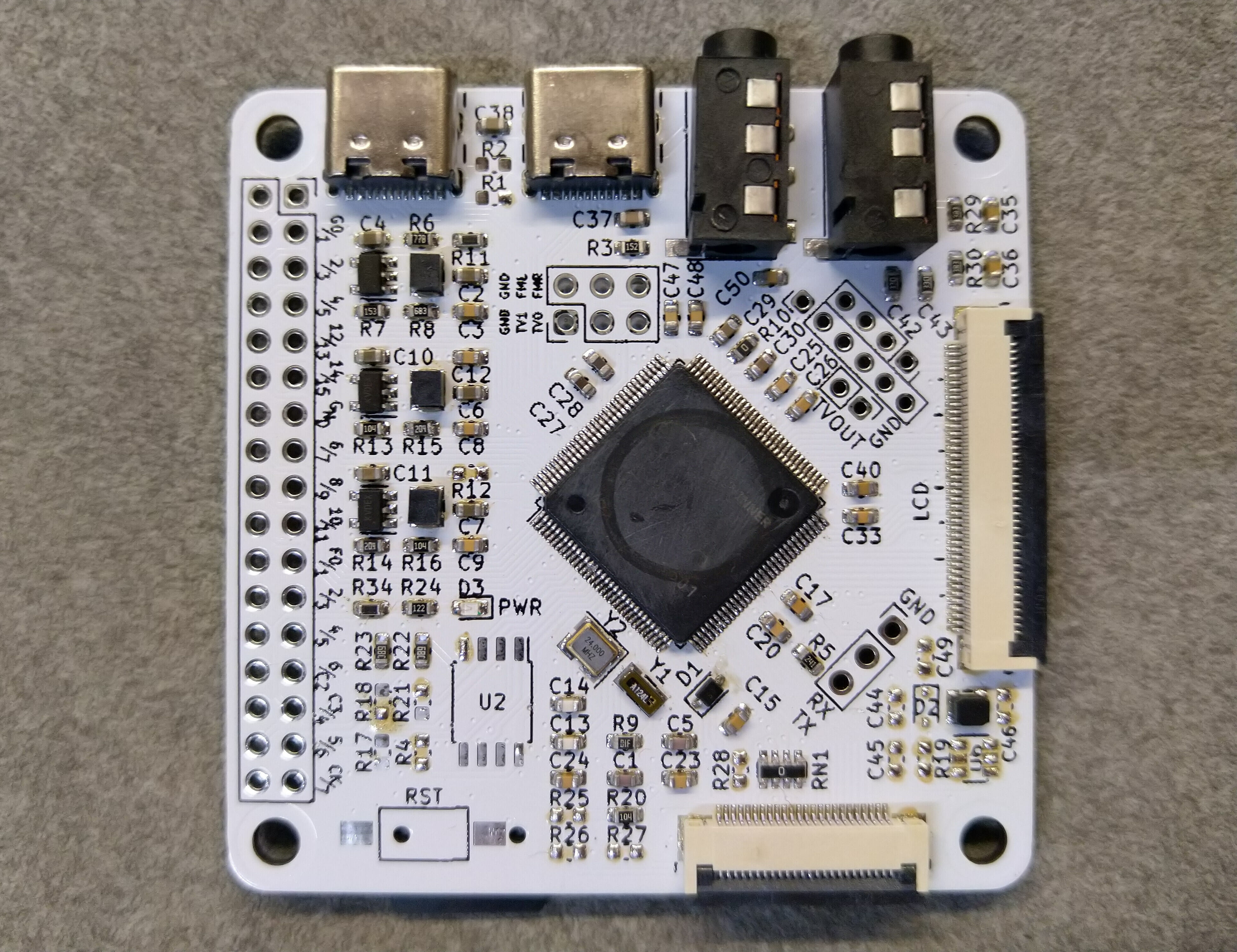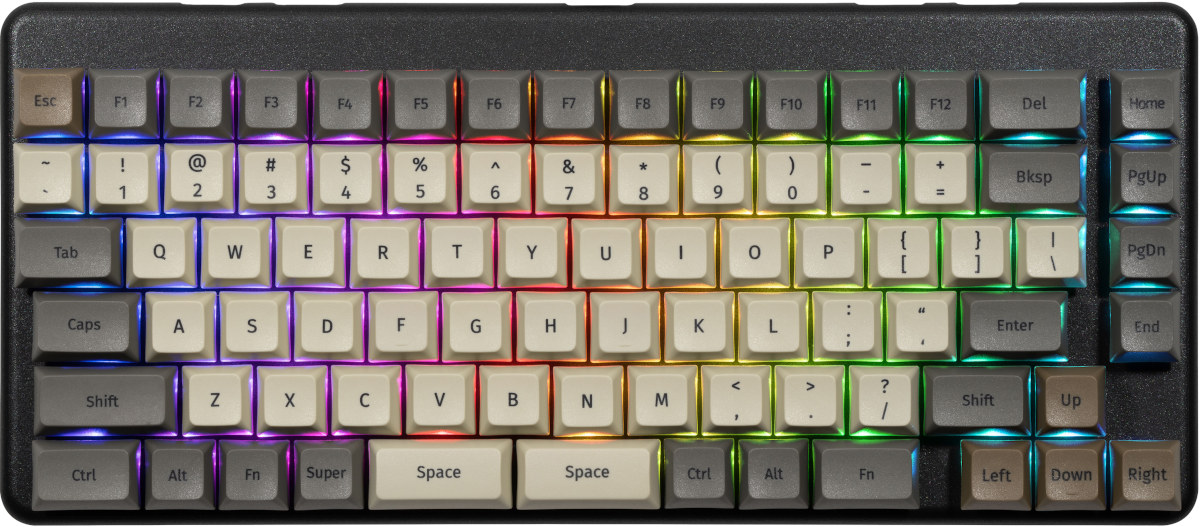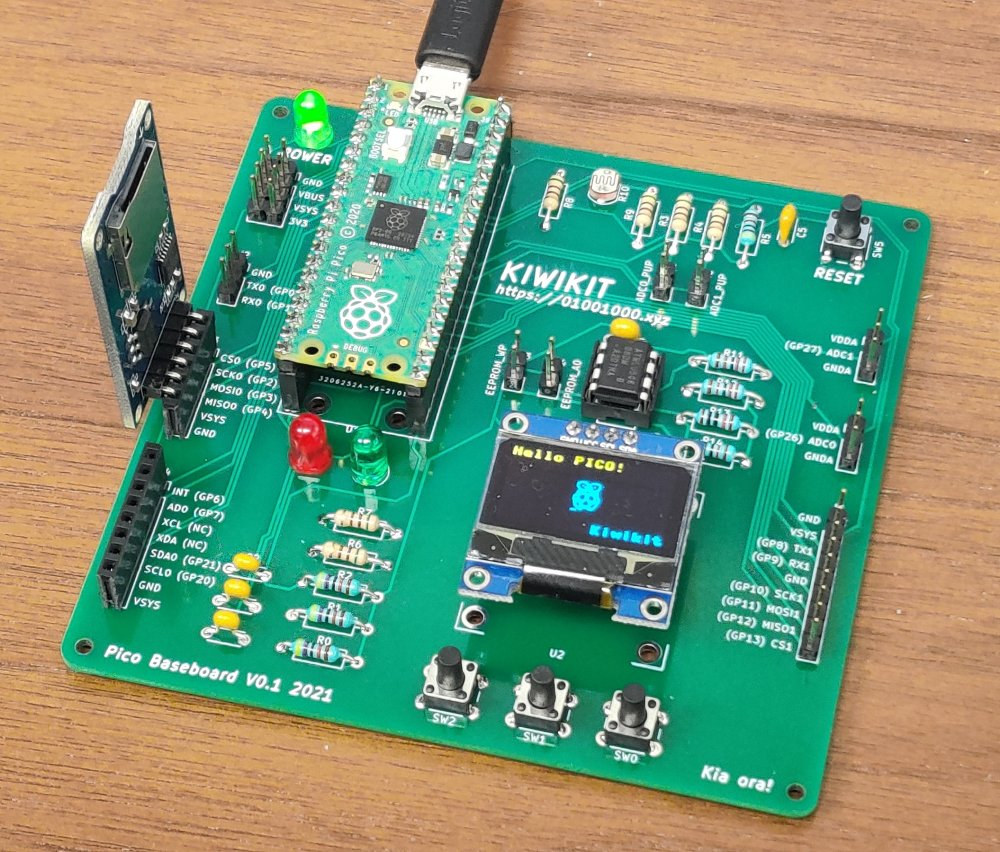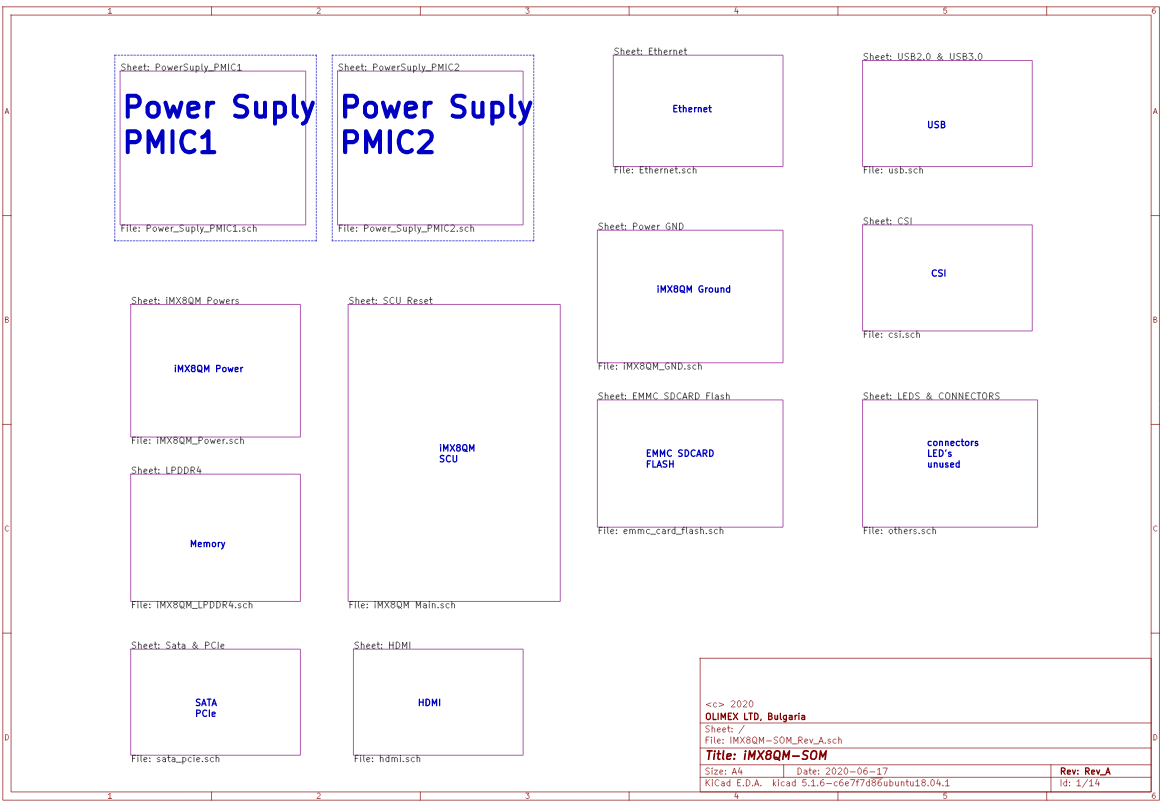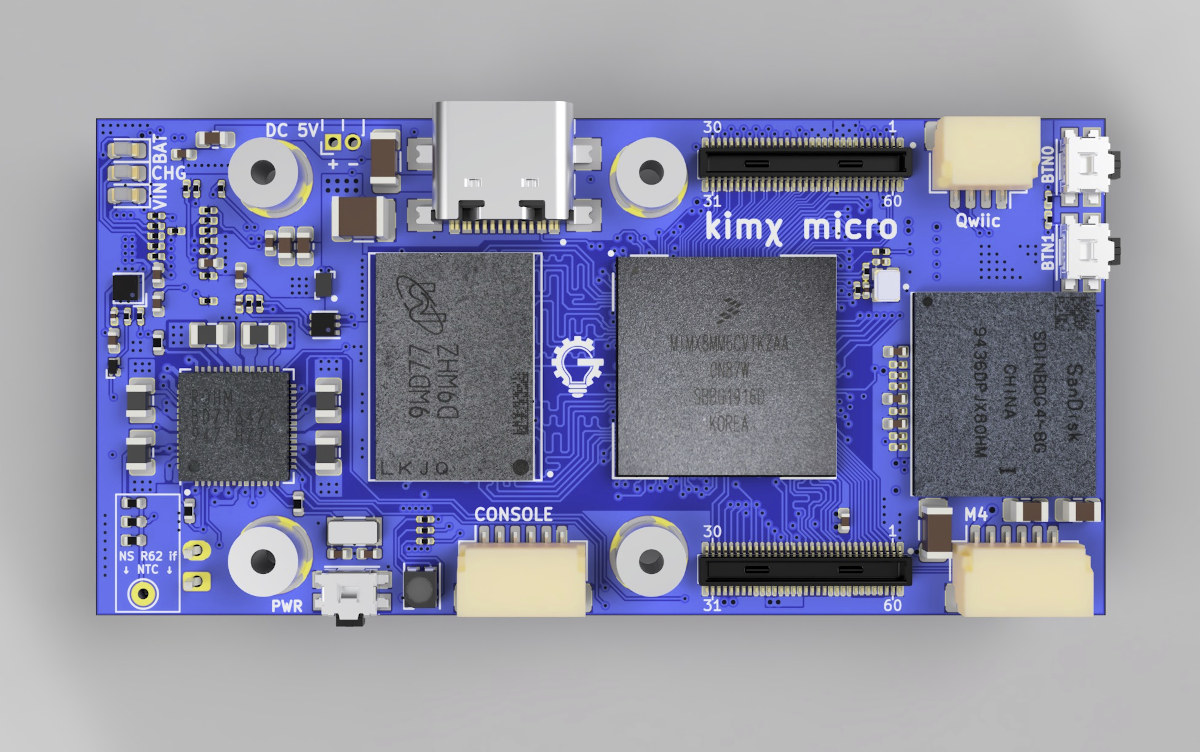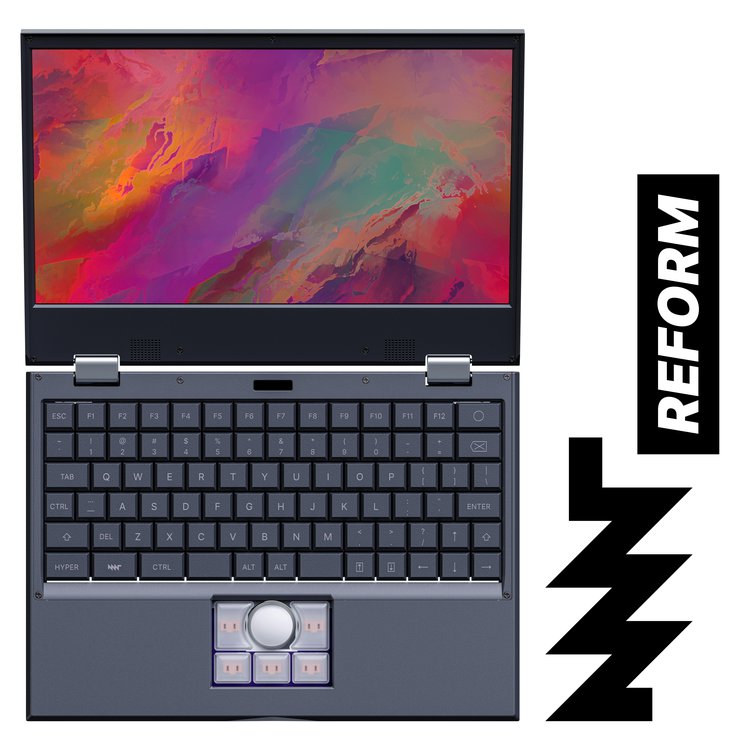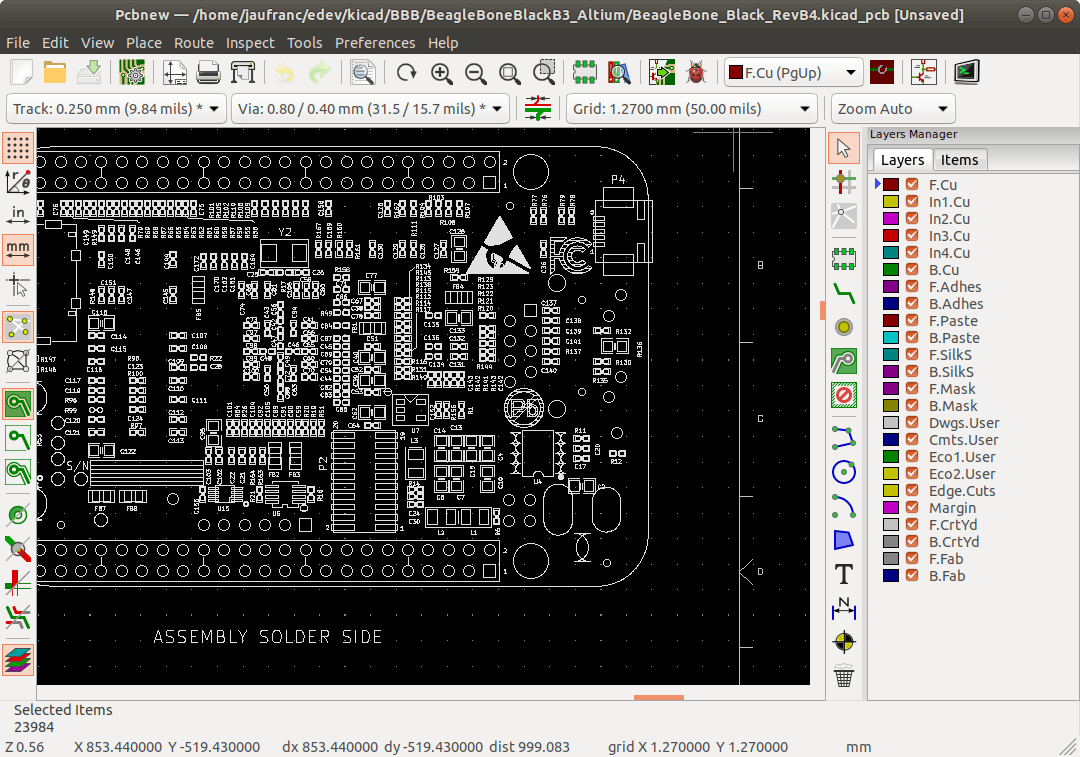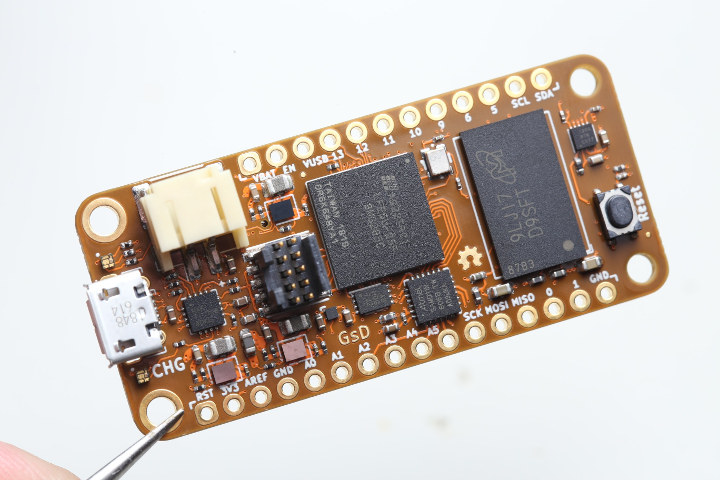We covered Allwinner D1s RISC-V processor with 64MB built-in RAM a few days ago, and we’ve just found out about Xassette-Asterisk, an open-source hardware board based on the processor that runs Linux (OpenWrt) and is said to cost less than $10 to make. This is significantly cheaper than the Allwinner D1 based Nezha RISC-V Linux SBC currently sold for a little over $100, a rather poor value. The cheaper board will not quite have the same applications with just 64 MB RAM and no HDMI, but it could be great for projects requiring a camera and/or a display, audio interfaces, plus some I/Os. Xassette-Asterisk specifications: SoC – Allwinner D1s single-core 64-bit RISC-V processor @ 1.008 GHz with 64MB DDR2 Storage – MicroSD card slot, 32 MBit SPI flash (W25Q32 – U2 on the board) Display I/F – 40-pin LCD connector, 6-pin touch panel interface, backlight power Camera I/F – 24-pin […]
System76 Launch is an open-source hardware, configurable keyboard
System76, the company better known for its Linux laptops, has launched an open-source hardware, configurable keyboard. Meet System76 Launch. The keyboard firmware, schematics, and mechanical files are all open-source. Launch ships with an ANSI US QWERTY layout but can be customized through a configuration program for Windows, Linux, and macOS, and a key puller is included to easily replace/change keycaps as needed. System76 Launch keyboard specifications: Open-source custom PCB Individually addressable RGB LED backlighting N-Key Rollover to detect all keystrokes no matter how many keys are pressed simultaneously Sockets and Switches Kailh MX Hotswap Sockets Kailh Box Jade or Kailh Box Royal Switches Key Caps – PBT plastic, dye sublimated legend, XDA profile Layout – ANSI US QWERTY Integrated USB hub with 2x USB 3.2 Gen 2 Type C (Up to 10 Gbps), 2x USB 3.2 Gen 2 Type A (Up to 10 Gbps) Open-source milled chassis design with detachable […]
Kiwikit Raspberry Pi Pico baseboard takes off-the-shelf modules
While it’s possible to use Raspberry Pi Pico with a breadboard or Veroboard, we’ve seen the benefits of inserting the board into a baseboard such as Maker Pi Pico providing LEDs, a MicroSD card, audio output, and the ability to add ESP-01 WiFi module or well as up to two Grove expansion modules. Hammond Pearce decided to design his own Raspberry Pi Pico baseboard with Kiwikit board supporting some of the off-the-shelf modules and interfaces he commonly uses. Kiwikit key features and specifications Supported module – Raspberry Pi Pico Storage – 8-pin header for AT24C08 EEPROM up to 1KB Display – Connector for I2C SSD1306 OLED display On-board sensor – LDR (light-dependent resistor aka photoresistor) connected over analog input I/Os SPI header working for instance, with SD card modules as shown in the photo above. I2C header compatible with MP-6050 accelerometer/gyroscope modules Header with 2x ADCs with optional pull-ups that […]
Ignitial Tukhla High-End Open Source Hardware NXP i.MX 8QuadMax SBC in the Works
[Update: The European company that initiated the project is Ignitial based in the west of France. So while we refer to the board as Olimex Tukhla in the post, it will be offered as Ignitial Tukhla once it becomes available] Most open-source hardware Arm Linux SBCs are optimized for cost, and there are few higher-end boards with extensive connectivity designed for professionals. Beagleboard X15 would be one of the rare examples currently available on the market, but it was launched five years ago. One European company noticed the void in this market and asked Olimex to develop a high-end open-source Linux board with a well-documented processor. They ruled out RK3399, and instead went Olimex Tukhla SBC will be powered by NXP i.MX 8QuadMax, the top processor of i.MX 8 family with two Cortex-A72 cores, four Cortex-A53 cores, and two real-time Cortex-M4F cores. As you can see from the screenshot above, […]
Raspberry Pi Zero Sized Kimχ Micro SBC is Equipped with a Quad-Core Processor, an mPCIe Slot
The Raspberry Pi Zero (W/WH) board is great because of its size, price tag, and software support, but processing power is limited with Broadcom BCM2735 SoC only offering a single ARM11 core clocked at 1 GHz. There are already some more powerful boards in a similar form factor include Banana Pi M2 Zero or FriendlyELEC NanoPi Duo2 both equipped with an Allwinner quad-core Cortex-A7 processor, but there’s another upcoming board with NXP i.MX 8M Mini quad-core 64-bit Cortex-A53 processor. Meet Kimχ Micro (pronounced Kimchi Micro). Kimχ Micro (preliminary) specifications: SoC – NXP i.MX 8M Mini single to quad-core Cortex-A53 processor @ up to 1.8 GHz, Cortex-M4F real-time core @ up to 400 MHz, Vivante GC NanoUltra 3D GPU + GC320 2D GPU, VPU for 1080p60 video decoding and encoding; (Single and dual-core version of NXP i.MX 8M Mini processor are also compatible) System Memory – 2GB LPDDR4 Storage – 8GB […]
MNT Reform Open Source Hardware Laptop Launched for $999 and Up (Crowdfunding)
MNT Reform DIY Arm Linux laptop has been in the works at least since 2017. The open source hardware laptop is also fully modular with Boundary Devices Nitrogen8M SoM featuring NXP i.MX 8M quad-core Cortex-A53 processor and 4GB RAM, M.2 NVMe SSD storage, and standard, replaceable 18650 batteries. The good news is the laptop is now almost ready for prime-time and has been launched on Crowd Supply with price starting at $999 in DIY kit form without storage, and $1,300 for a complete, assembled system with 256GB NVMe storage. If you don’t have that amount of money to spend, but would like to support the project, a $40 MNT Reform T-shirt is also offered. Alternatively, the motherboard only goes for $550. Here’s a reminder of MNT Reform specification: SoM – Boundary Devices Nitrogen8M SoC – NXP i.MX 8MQuad quad-core Cortex-A53 processor @ 1.5 GHz, 1x Arm Cortex-M4F real-time core Vivante […]
How to Build KiCad on Ubuntu 18.04 / 20.04 and Import Altium PCB Files
KiCad open-source EDA (Electronics Design Automation) suite software is now very popular, and many new projects are designed with the utility. AFAIK, some companies like Olimex switched all their new designs to KiCAD. But since many schematics and PCB layouts have been designed with other tools like EAGLE, Orcad Allegro, or Altium PCB design tools, it would be nice to be able to import those designs into KiCad. Converters have been around for a long time but when I tried to convert Beagleboard-xM OrCAD schematics to import them in KiCAD back in 2012, the results were really awful and unusable. But I recently saw a tweet saying it’s now possible to import Altium files into KiCAD. Finally, importing #altium boards into #kicad is only one click away (in the developer version). This allows to view and edit #opensource #hardware which was designed with #proprietary software, and thus, in fact, not […]
OrangeCrab is an Open Source Hardware, Feather-Compatible Lattice ECP5 FPGA Board
Lattice ECP5 FPGA powered OrangeCrab is the work of Greg Davill who designed the Adafruit Feather-compatible board in KiCAD, crowdsourced schematics/PCB checking and published his progress on Twitter, and published the files of the open source hardware board on Github. OrangeCrab board hardware specifications: FPGA – Lattice ECP5 25/45/85 variants System Memory – Up to 8Gbit DDR3 Memory (x16) Storage – 128Mbit QSPI FLASH Memory (Bitstream + User storage), 4-bit MicroSD socket USB – Micro USB connector, full-speed direct USB connection to FPGA Programming – 10-pin FPGA programming header Expansion – I/O’s broken out via 30 through holes: GPIO, SPI, I2C, Analog, … 7x diff pairs, 1x single ended only Misc – Reset Button, charge LED (Green: external power, Yellow: when charging, No color: when running off battery), 48MHz Oscillator Power Supply – 5V via USB port, battery header for LiPo battery + battery charger chip Dimensions – Adafruit Feather […]


